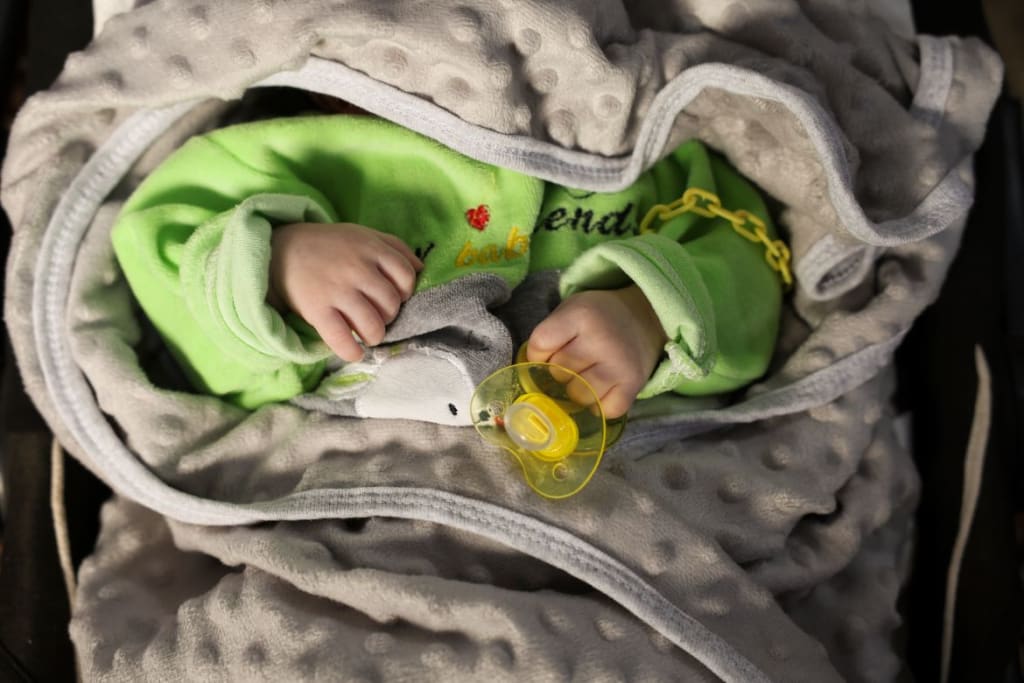Understanding Baby’s Nonverbal Communication
Baby’s Nonverbal Communication

Understanding Baby’s Nonverbal Behavior
Of course! Babies are typically infants or very young children. They require special care and attention due to their delicate nature.
Paying attention to a baby's nonverbal cues is crucial because it helps caregivers understand their needs, emotions, and comfort levels. Responding to these cues helps build a strong bond and fosters a sense of security and trust between the caregiver and the baby.
Understanding the unspoken words of a baby involves attentive observation and interpreting their nonverbal cues. Babies communicate primarily through body language, facial expressions, and sounds. Here are some key aspects to consider:
Facial Expressions :
Babies often convey their emotions through facial expressions. A smiling baby is likely content or happy, while a furrowed brow might indicate confusion, discomfort, or frustration. Pay attention to subtle changes in their expressions to gauge their emotional state.
Crying :
Crying is a primary mode of communication for infants. It can signal various needs, such as hunger, discomfort, or tiredness. The intensity and rhythm of the cries can offer clues about the urgency and type of response required.
Gestures :
Babies use gestures to express themselves before they can speak. They might reach out for objects they want, raise their arms to be picked up, or point to something of interest. Responding to these gestures encourages their sense of agency and communication.
Eye Contact :
Babies may hold eye contact to establish a connection and express their feelings. Maintaining eye contact with your baby during interactions can help strengthen your bond and enable better communication.
Body Movements :
Infants' body movements can reveal a lot about their mood. Kicking their legs excitedly might mean they're happy, while arching their back could indicate discomfort or a need for burping.
Sounds and Coos :
Even before they start forming words, babies produce a variety of sounds and coos. Pay attention to the pitch, rhythm, and context of these sounds to understand their attempts at communication.
Responses to Voices :
Babies may turn their head or react when they hear familiar voices. Engage in conversations with your baby, as their responses can provide insights into their preferences and emotions.
Sucking and Rooting Reflexes :
Sucking on their fingers or searching for a nipple (rooting) are innate reflexes that indicate hunger. Recognizing these cues helps you respond promptly to their needs.
Social Smiles :
Around six to eight weeks of age, babies often start giving "social smiles" in response to interactions and stimuli. These smiles indicate their growing ability to engage socially and their enjoyment of your presence.
Body Language :
Observing your baby's overall body language can help you understand their comfort level. Relaxed, open body postures typically indicate contentment, while tense or stiff postures might signal unease.
Mimicking :
Babies naturally mimic facial expressions and sounds they observe. If you stick out your tongue or make a funny noise, your baby might try to imitate you, showing their interest and engagement.
Cues for Sleep :
Babies display unique cues when they're tired. These can include rubbing their eyes, yawning, becoming fussy, or losing interest in their surroundings.
Reactions to Environment :
Notice how your baby reacts to different environments, people, and stimuli. Some babies might be more sensitive to noise or changes in lighting, which can affect their mood and behavior.
Remember that each baby is unique, so it's important to spend quality time interacting with your baby to learn their individual cues and signals. Over time, your ability to understand their unspoken words will improve, strengthening your bond and enhancing your caregiving skills.please don’t forget to subscribe for more edifying content. Thank you
About the Creator
Frankie Seven TV
Nothing is impossible, everything is possible!!






Comments
There are no comments for this story
Be the first to respond and start the conversation.